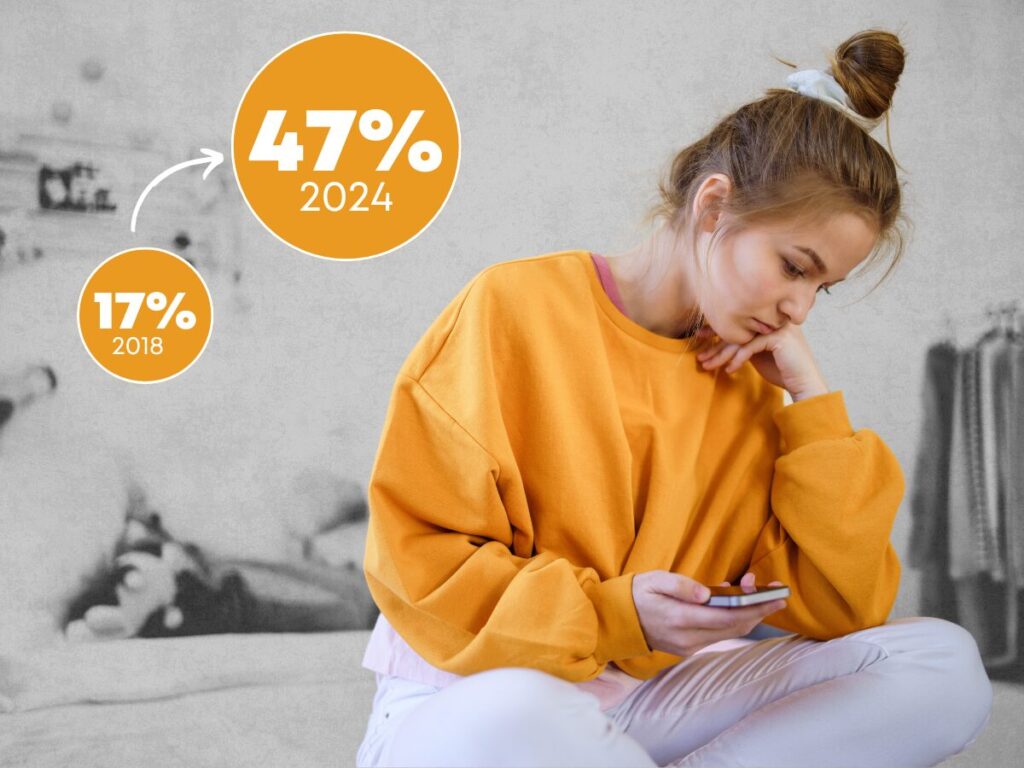A new report from Girlguiding UK paints a stark picture of the growing challenges faced by girls and young women across the country. The 2024 Girls’ Attitudes Survey, based on responses from over 2,500 girls and young women aged 7-21, reveals a disturbing increase in the number of girls feeling unsafe due to sexism. The proportion of girls who feel unsafe has doubled in the past ten years, underscoring a deepening crisis in gender-based inequality and violence.
According to the report, 47% of girls aged 11-21 now say they feel less safe because of sexism, a sharp rise from previous years. Particularly alarming is the fact that younger girls are feeling these pressures earlier in life, with girls as young as 7 reporting expectations to behave differently simply because of their gender. One in three girls aged 7-10 said they already feel these gendered expectations, a marked increase from 23% a decade ago.
Sexism has permeated all aspects of life for these girls, with nearly 95% of young women aged 17-21 saying they have seen or experienced sexism in their daily lives. Public spaces, online platforms, and media environments remain the most common sites of this discrimination, where girls often face harassment, objectification, and harmful stereotypes. The constant exposure to these issues is having a profound impact on their sense of safety and self-confidence.
One of the most troubling trends highlighted by the report is the link between sexism and deteriorating mental health. A significant number of girls report feelings of insecurity, anxiety, and low self-esteem, exacerbated by the sexism they encounter. The relentless focus on appearance and the pressures to conform to unrealistic standards have left many girls struggling with body image issues. Sixty percent of girls aged 11-16 reported receiving negative comments about their appearance, and 1 in 3 girls across the age range said they lack confidence in how they look.
The rise in online harm, particularly for girls, further compounds this issue. A staggering 77% of girls aged 7-21 reported experiencing some form of online harm in the last year. This includes cyberstalking, unwanted sexual images, and sexist comments or ‘jokes’. The internet, while a vital space for connection, is increasingly becoming a source of distress for young girls, many of whom feel pressured to alter their appearance or present a certain way online to fit societal expectations.
Speaking on the findings, a Girlguiding advocate, aged 19, remarked, “It isn’t surprising that sexism is a part of most girls’ lives, but it’s saddening to see. Girls see this discrimination all around, whether it be virtually, in education, or in public. The widespread nature of sexism in our society is unacceptable, and girls shouldn’t be growing up experiencing this as the norm.”
What’s more, the findings show that marginalised groups—such as LGBTQ+ girls, girls of colour, and disabled girls—are even more likely to experience sexism and its damaging effects. For these groups, the intersection of sexism with other forms of discrimination, such as racism and ableism, compounds the harm.
Despite the grim findings, the report also sheds light on the resilience and hope that many girls continue to hold. While half of girls feel anxious about the future, many remain determined to challenge sexism and work towards a more equal society. Girls across all age groups are calling for action to address sexism in public spaces, schools, media, and online platforms.
The Girlguiding report serves as a call to action for both the government and society to take immediate steps to ensure the safety and wellbeing of girls. The voices of these young women are clear—they want change, and they are not willing to wait any longer for a future where they can live free from fear, judgement, and inequality.
